Like us on Facebook!
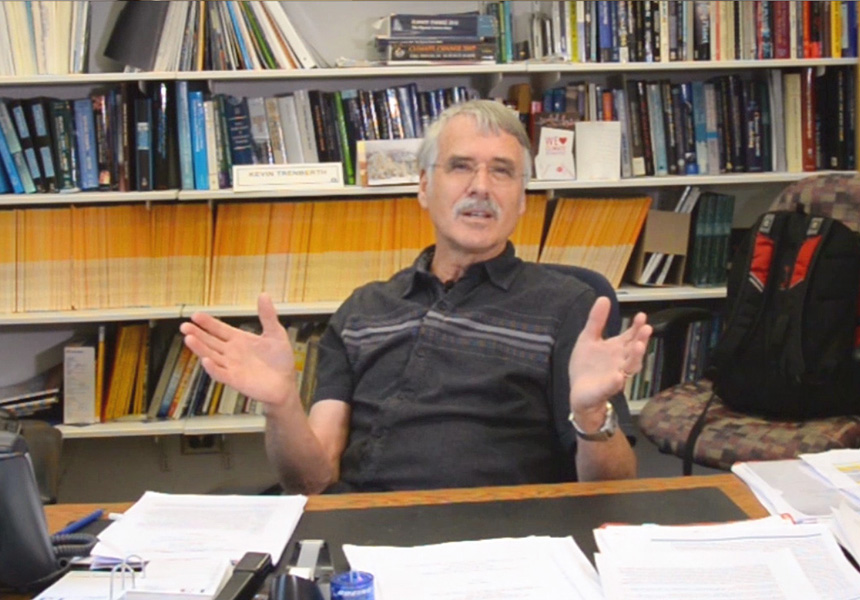
Not only is climate change is real, but yes, humans are the main cause of it.
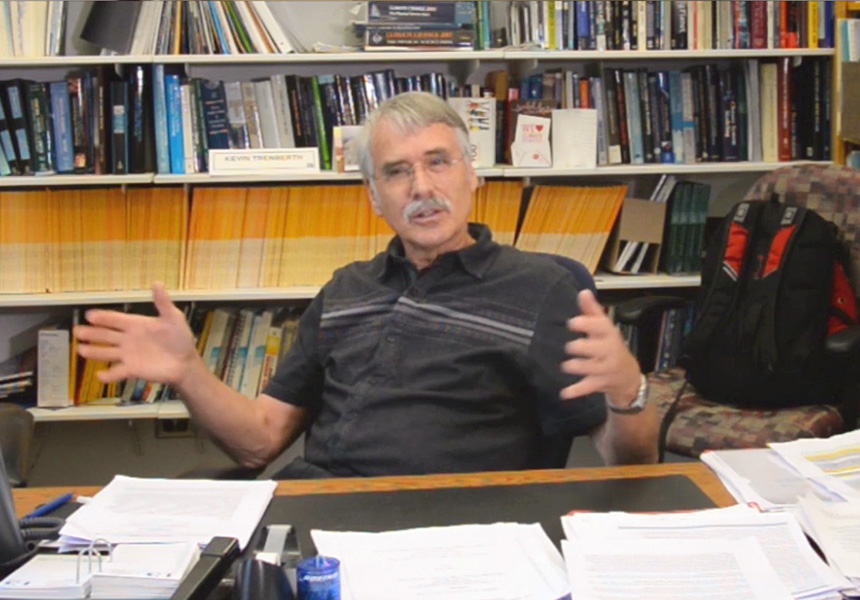
There's a large time lag built into the infrastructure, but there's even more time lag in the climate response. Changing the infrastructure will take decades, but the climate will be changing far longer, even from the CO2 already emitted. Bottom line: we're going to experience climate change and we better get working on it soon.
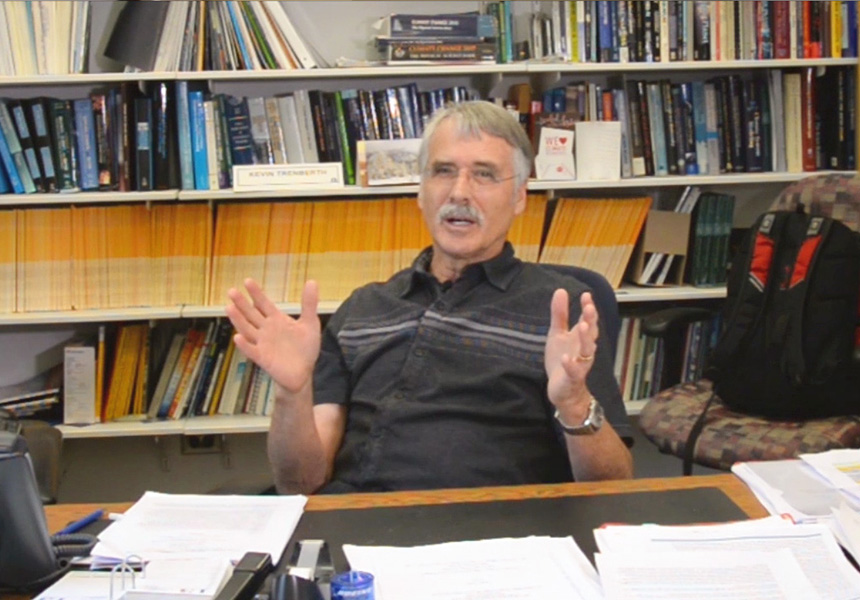
People don't realize how relentless global warming will be. The CO2 we put into the atmosphere will be there for hundreds of years, continuing to heat up the earth. So the signs we’re seeing now will be much greater in the future, then made even worse by continued emissions. Given these time scales, by the time most people recognize that "Oh yes, we've really got a problem, we've got to do something about it", it's far too late.
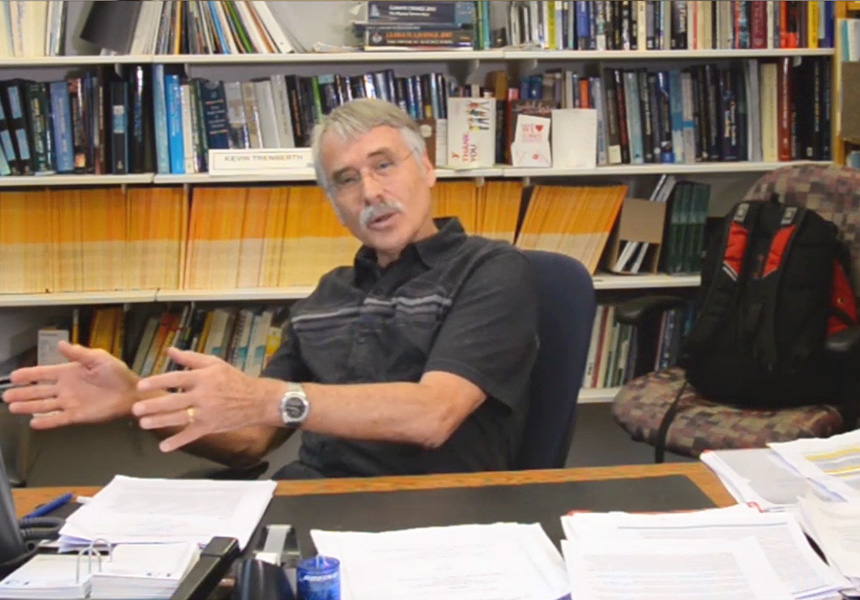
All the recent floodings are stark reminders that climate change shifts the bell curve on precipitation. Kevin explains that it’s a systemic effect as the atmosphere heats up – the storms look similar, but on average there’s more rain due to more moisture in the atmosphere.
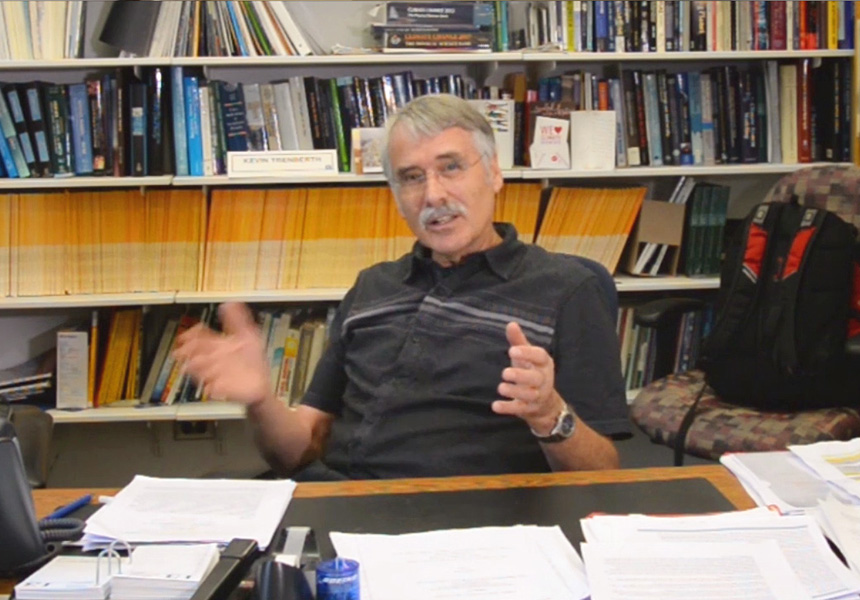
While climate change is very gradual, the effects aren’t. When a big storm surge comes in with extra rain on top of the rising sea level, it causes devastation. If you were waiting for the water to get up to your ankles, you just got washed away.
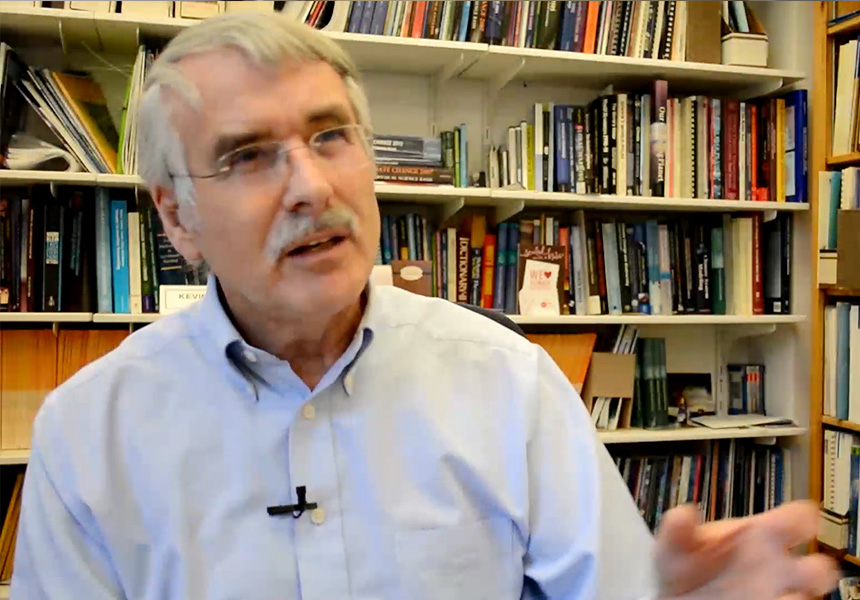
Kevin Trenberth, distinguished scientist at the National Center for Atmospheric Research, explains that the issue isn't that the climate is changing -- it's really how rapidly it's changing and how large those changes are.
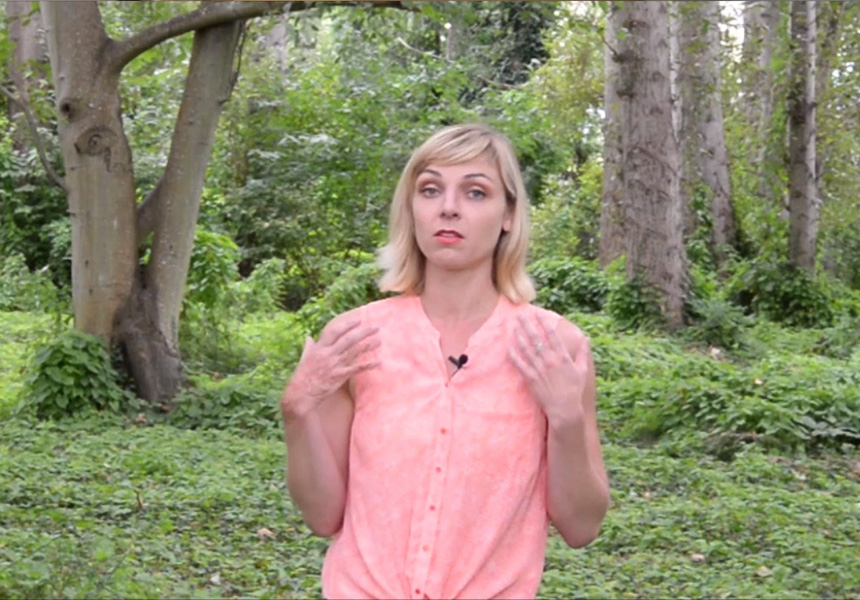
Why should we care about the climate? For Kevin Trenberth it comes down to values -- caring about his kids and grandkids but also seeing climate change as a global problem that we’re all in together. In particular, it’s time for those countries that have played the major role in causing the problem to step up and take the leadership.
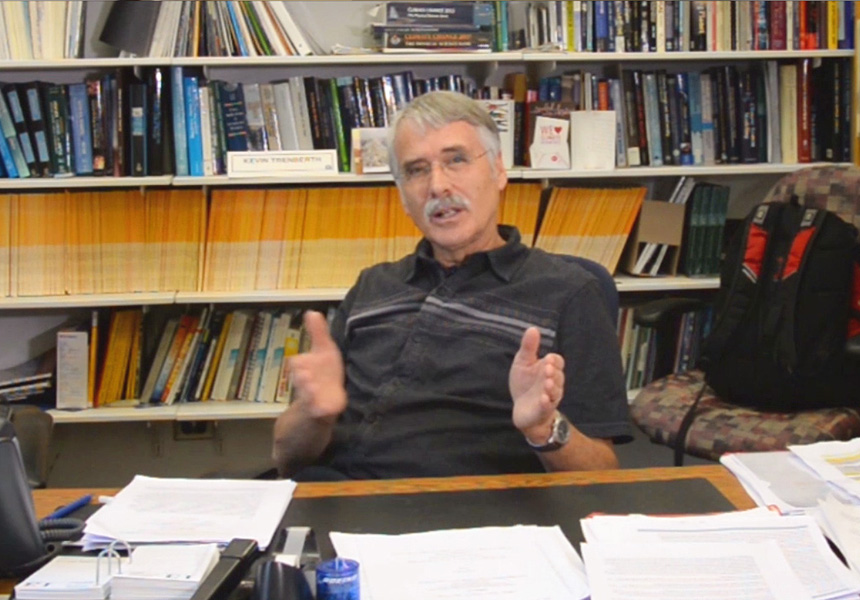
Just within the past year: Louisiana, Texas, Missouri, all along the Mississippi, Oklahoma, Colorado, and all around the world in other places. It’s not in the same place very time, it moves with weather patterns, but when you look at the whole picture you see “Oh everywhere when it rains it tends to rain harder and therefore the risk of flooding is going up”
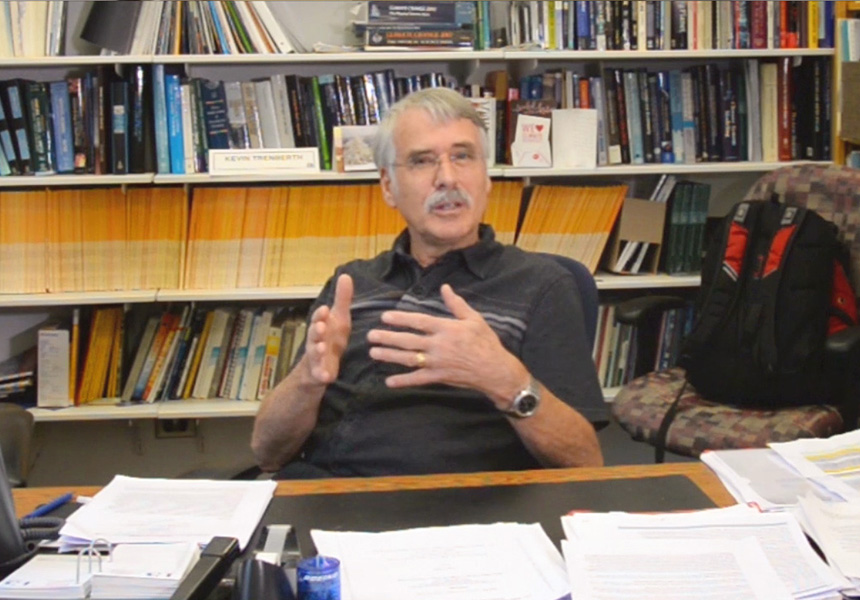
As affluent humans we can go inside and turn on the a/c. But nature can’t do that and the effects of climate change march on. Foremost are the hydrological effects of the atmosphere absorbing more moisture – drier dry places and wetter wet places, with floods, droughts, and wildfires.
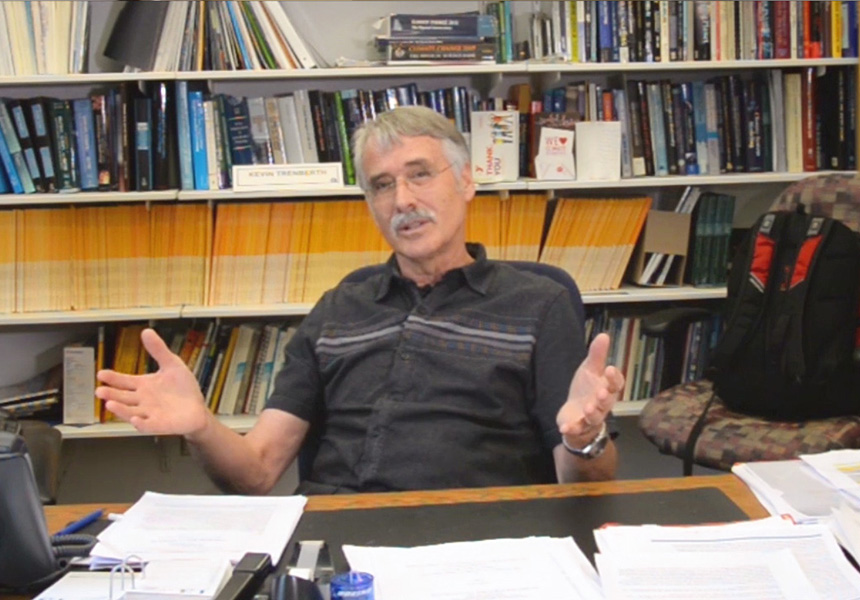
A quick overview of climate change from one of the authorities…
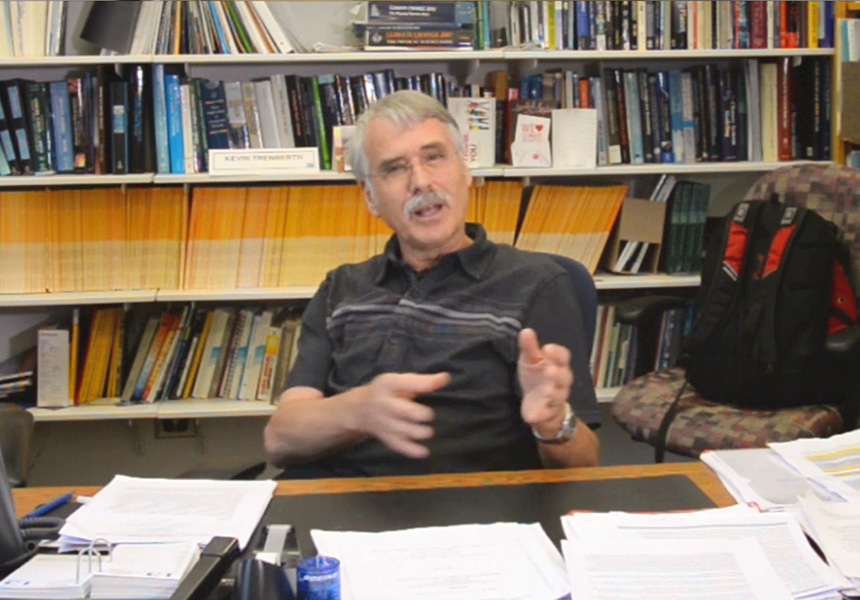
Kevin discusses two climate scientists he knows who dispute anthropogenic climate change.
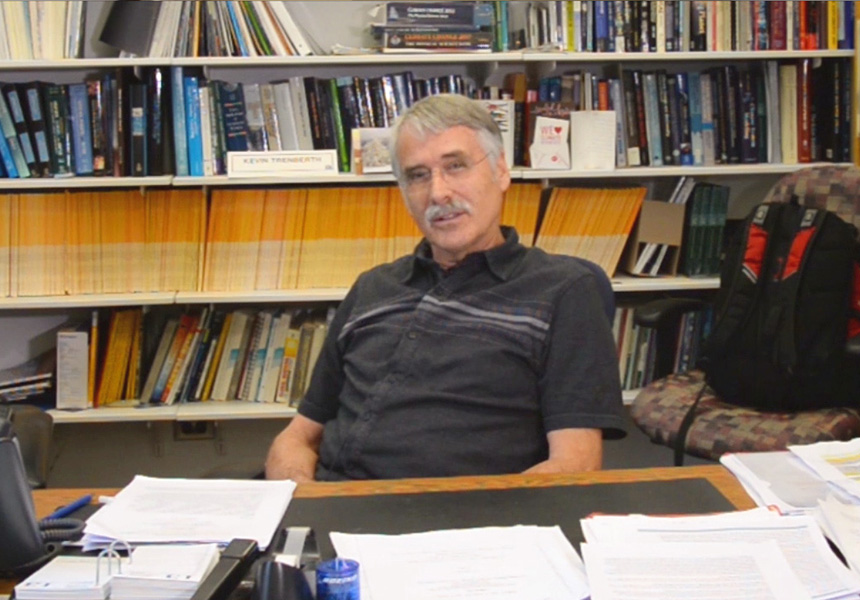
When watching the lack of progress, it can be hard to be optimistic. But good things are happening now, and in particular setting the stage for the private sector to take up renewable energy. With a price on carbon, the incentive for new technology and deployment of renewable energy can give us the changes we need.
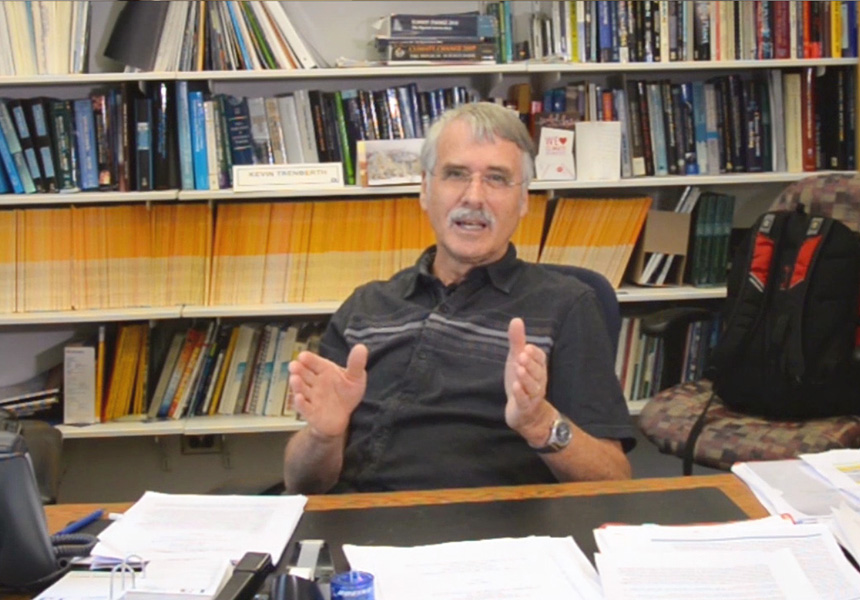
All the recent floodings are stark reminders that climate change shifts the bell curve on precipitation. Kevin explains that it’s a systemic effect as the atmosphere heats up – the storms look similar, but on average there’s more rain due to more moisture in the atmosphere.
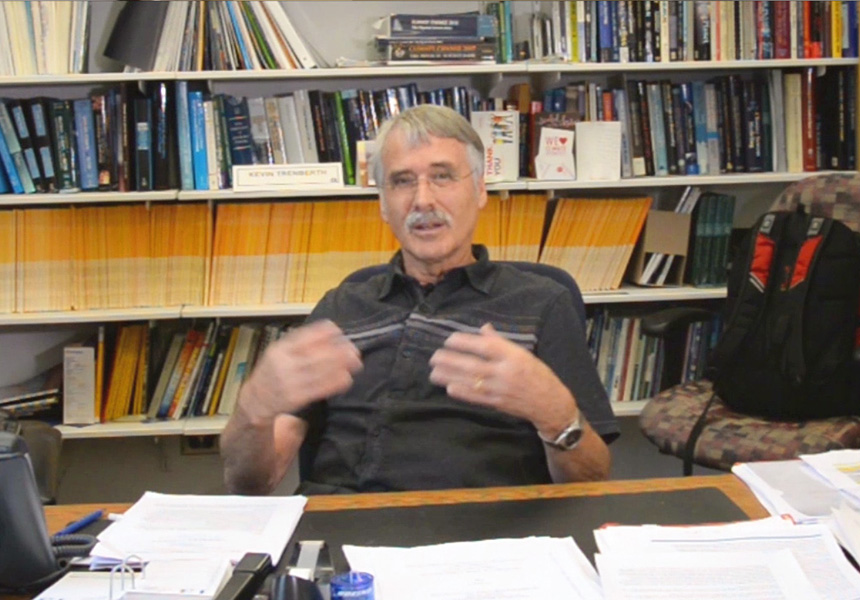
As scientists our role is to deal with the facts, the observations, and the analysis of those. What we as a society do about it is up to all of us and depends on our value systems.